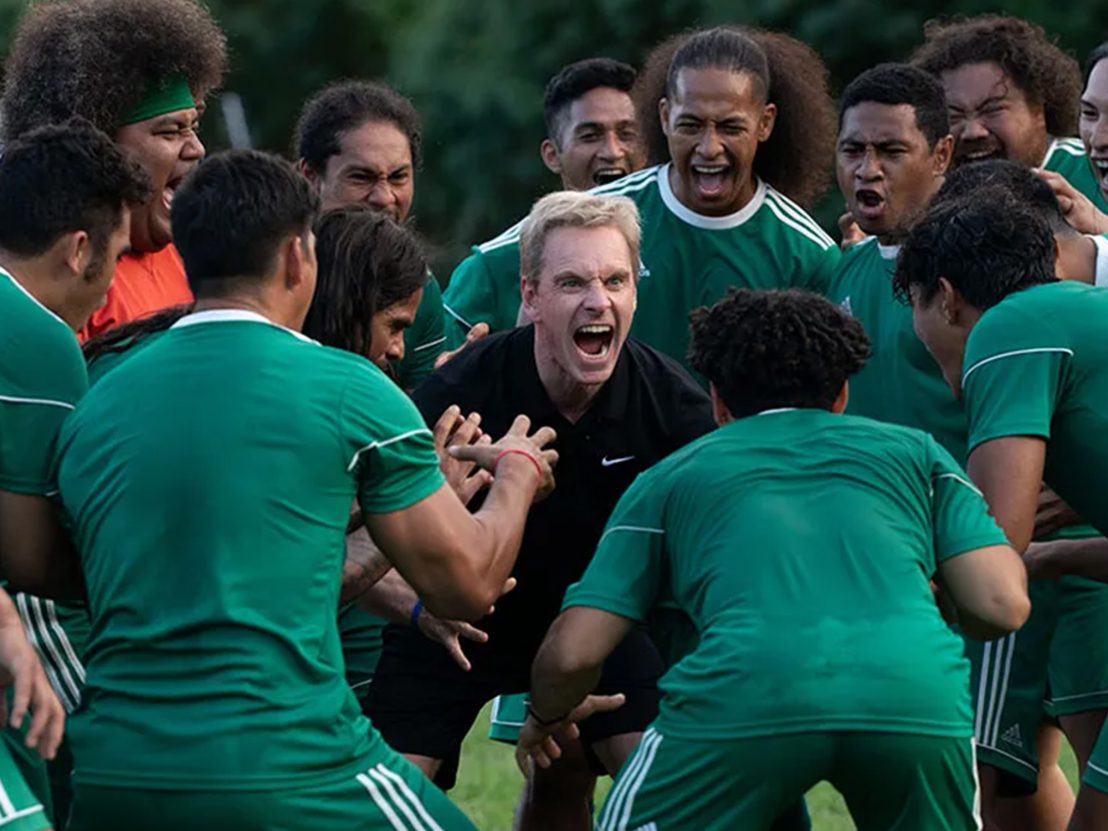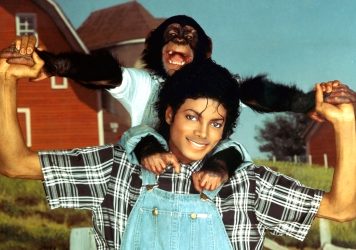
Taika Waititi is way-too eager to please with this aggressively feel-good comic fictionalisation of the lovely 2014 documentary of the same name.
In Next Goal Wins, Taika Waititi depicts Samoans the same way he depicted Hitler: as absolutely adorable. Based on Mike Brett and Steve Jamison’s 2014 documentary of the same name, about minnow football team American Samoa and their seasoned Dutch-American coach Thomas Rongen’s quixotic quest to qualify for the 2014 World Cup a decade after their infamous 31-0 defeat against Australia.
The Samoans Rongen (Michael Fassbender) meets when he gets off the plane are fey, smiling all the time and fussily apologising for themselves; they’re sweetly overemotional and unfailingly polite, childishly devout, stopping dead in their tracks in prayer, and silent as nap time. The team is too clumsy to perform a coordinated pre-match Manu Siva Tau dance.
They’re unsophisticated hicks whose island has one store, one restaurant, and one police car, whose siren doesn’t work. the first thing they do when they check into a hotel after a jet-lagging 35-minute plane trip is to jump on the beds. They’re too dumb to know when someone is making fun of them. They’re eager to please. They’re goofy little mascots.
But it’s okay, because this is Waititi putting Pacific Islanders front and center on the big screen — the writer-director leaned heavily on talking points about representation when he introduced the World Premiere at TIFF this weekend. He also told his crowd that this was “one of those rare films in which nothing bad happens to anyone,” and that we should feel free to laugh. And the islanders ultimately get the last laugh, by teaching the cranky coloniser Rongen valuable lessons about finding your chosen family.
Rongen, drunk as Walter Matthau in The Bad News Bears, arrives on the island at rock bottom, inheriting a team whose striker can barely kick a ball without falling over and whose overweight goalie waddles around like The Mighty Ducks’ Goldberg. Taskmaster Rongen whips them into shape through multiple mock-inspirational training montages, but also learns to respect their traditions, particularly regarding the fa’afafine identity of center-back Jaiyah Saelua (Kaimana).
The real-life Jaiyah is a still-active player whose uniquely Polynesian third-gender identity highlights the limitations of FIFA’s regulations, and has gone on and off estrogen around important matches. Though Waititi relishes the opportunity to show off his ally bona fides, giving Rongen an arc in which he first deadnames the player, then asks her what’s going on “down there,” and finally gives her an applause-baiting pregame pep talk that encourages her to hold her own with the boys, the feel-good storyline has the unfortunate effect of confirming the narrative that a trans woman’s place is in the men’s locker room.
There is wisdom, the hotheaded and embittered Rongen learns, in these naive islanders’ graceful way of losing. He’s their coach, but really they’re coaching him — in the game of life. His big locker-room speech is about his own private failings and obviously-telegraphed hidden trauma.
It’s just impossible to trust someone this ingratiating — I detect in Waititi a contempt for anyone simple enough to buy what he’s selling, which is implicit in the lazy plotting; in the embrace of the hoary sports-movie cliché of the unpolished star discovered when he happens to kick something in anger with a foot like a traction engine; in the barely-disguised meanness with which he builds up soppy moments and then winkingly undercuts them; and the knowing, out-of-character winks to the audience about “white saviours,” as if assuring us that the guy behind the camera is hip despite all his pandering with antic slapstick and dopey one-liners.
In adapting the documentary Next Goal Wins, Waititi has taken possession of a turn-key underdog story with readymade moments of triumph, though he keeps his camera very close to the action in the on-field scenes, so he doesn’t have to choreograph very much of it. In general the movie is brightly, flatly lit, with the camera mostly anchored at medium distance and eye level, which speaks both to Waititi’s indifference as a visual stylist as well as to a general we-used-to-make-things-in-this-country decline in industry standards.
Go on YouTube to watch the opening credits of Jon Turteltaub’s Cool Runnings (1993) and take note: shot on film with what to my eye looks like a well-selected diffusion filter to take advantage of the natural light; camera movement along multiple axes; cutting between coverage and close-ups from multiple setups. I want to be clear here that I do not consider Cool Runnings to be a particularly well-directed film. It’s another feel-good David-vs.-Goliath sports movie with corny jokes and manipulative lowest-common-denominator storytelling. But at least it was made for actual children, not an audience of adults that its filmmaker treats like children.
The end of the film’s climactic game is narrated after the fact to a character who missed the second half. It’s just a highlight reel, with no building suspense, jumping from climax to climax, each closing an arc for characters we’ve met. It’s described so breathlessly, its events so scarcely believable, that it feels made up to keep our attention. (It’s the barest outline of a real match, with heavy embellishments.) It’s Waititi in microcosm: a filmmaker who, in the moment, will just say or do whatever he thinks will make you feel good. It’s how he controls the encounter. It’s how he holds onto his power.
Published 12 Sep 2023

By Jake Cole
Taika Waititi takes aim at the Third Reich (and contemporary fascism) in this paper-thin satire.

Superheroes go comedy as Taika Waititi brings some much needed heart, soul and humour to the Marvel universe.

Bubbles will be a stop-motion animation in the style of Anomalisa.